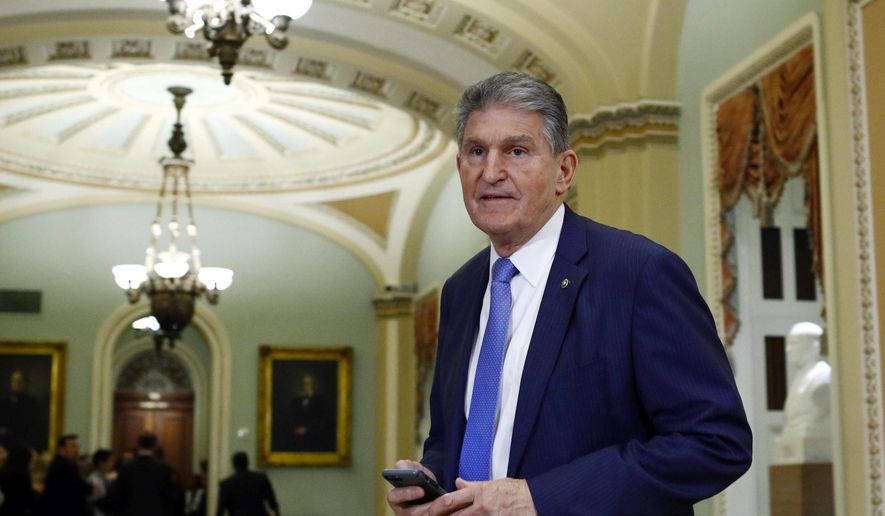OPINION:
If, as he insists, Sen. Joe Manchin of West Virginia opposes his fellow Democrats’ far-left agenda, there would be no more effective way of doing that than for him to switch parties and become a Republican.
The Democrats’ radical agenda could include packing the U.S. Supreme Court with liberal justices, abolishing the Electoral College and the Senate filibuster, and granting statehood to the District of Columbia.
Mr. Manchin said on CNN on Nov. 10 of packing the high court: “I’m not voting for that.” He added: “I’m not voting for basically breaking the filibuster because that means that we’ve given up on the Senate. It’s supposed to work in a bipartisan way. I would never do that.”
Democrats apparently learned nothing from the resounding repudiation voters handed to them for misreading their 2008 mandate and enacting Obamacare in the 2010 midterms, in which they lost 63 House seats and six in the Senate.
With Democrats having captured both of the Georgia seats in the Senate on Jan. 5, the Senate now will be split 50-50. With Vice President-elect Kamala Harris poised to be the tiebreaker, there’s no reason not to take Sen. Chuck Schumer, New York Democrat, at his word on his Nov. 7 vow to “change America.”
Mr. Manchin can pre-empt all of that by switching parties, denying Democrats the opportunity to steamroll their radical agenda through.
There are two other good reasons for Mr. Manchin to become a Republican:
1.) West Virginians gave 68.6% of their votes to President Trump over Joe Biden, which makes the Mountain State if not the reddest of states, certainly in the Top 5.
2.) There’s recent precedent for it in Mr. Manchin’s own backyard: West Virginia Gov. Jim Justice, who was elected as a Democrat in 2016, switched parties just seven months later. He won re-election in a landslide in November.
Senate Majority Leader Mitch McConnell, Kentucky Republican, could throw in a plum committee chairmanship or two as an added incentive for Mr. Manchin to switch sides.
In a Senate split 50-50, he will come under intense pressure to toe the party line and support the Democrats’ far-left agenda.
While the West Virginia lawmaker could vote against his current party’s far-left agenda while remaining a Democrat, doing so would make him about as popular as the proverbial skunk at a garden party at meetings of the Senate Democratic caucus.
In short, it would be easier for Mr. Manchin to switch than to fight his party. He could cite Ronald Reagan, who explained his 1962 switch of party affiliation: “I didn’t leave the Democratic Party. The party left me.”




Please read our comment policy before commenting.